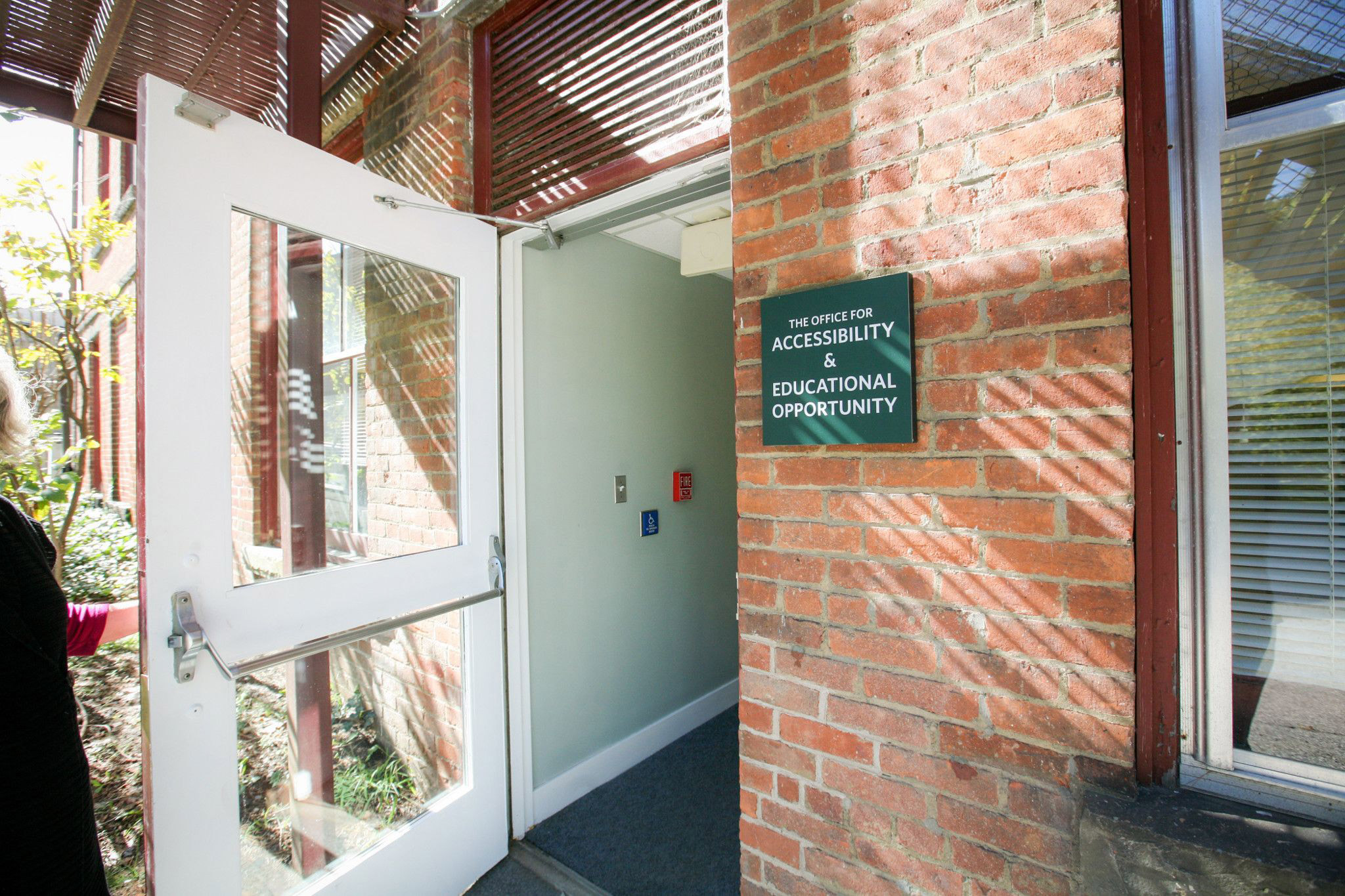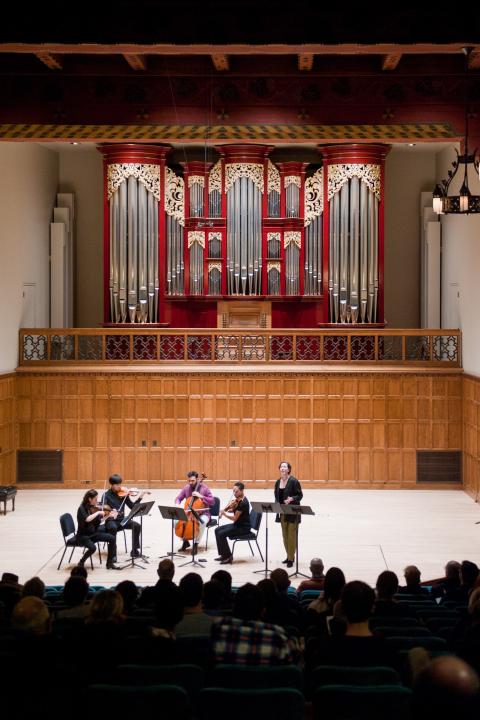New Plan Takes Aim at Barriers to Accessibility on Campus
Vassar College has unveiled a comprehensive strategy to address issues of accessibility on the campus for students, faculty, and staff. The 2022-2024 Vassar College Accessibility Plan contains a blueprint for addressing barriers to access encountered by those who live and work on the campus as well as outside visitors.
Vassar’s Office of Accessibility and Educational Opportunity has long been charged with assisting those facing accessibility issues on campus. But Marianne Begemann, Dean of Strategic Planning and Academic Resources, said the new plan marks the first time that the College has developed a broad-based strategic plan that will address short- and long-term issues of accessibility.

“The 2011 Landscape Master Plan, 2018/2019 Priorities and Planning process, and 2016 and 2020 Climate Action Plans have all demonstrated the positive impact of intentional planning,” Begemann said. “The 2022-2024 Accessibility Plan will lead to a substantially more accessible campus over the next two years, while also laying the groundwork for even greater work to come.”
The plan was developed following a survey and a series of forums last year in which members of the Accessibility Committee sought input from members of the Vassar community. Suggestions and observations provided by those who responded to the survey and attended the forums were incorporated into the Plan, said Cora Kenfield, Assistant Dean for Strategic Planning.
Kenfield said the plan represents a shift in how College officials view issues of accessibility. “From its inception, the Accessibility Committee pursued an expansive and holistic definition of ‘accessibility,’ reinforced during our public outreach and drafting process,” they said. “The 2022 Accessibility Plan begins to address challenges and barriers faced by the Vassar community, including physical access to buildings, support for neurodivergent learners, and gender identity, to name just a few of the many areas incorporated into the Plan.”

Sulekh Fernando-Peiris ’22, who served on the Accessibility Committee, said he was confident that the plan would lead to a broad spectrum of improvements in how the College addresses such issues. “I wanted to ensure that attention was paid to issues beyond physical disability,” Fernando-Peiris, a physics major from Gambier, OH, said. “Since COVID arrived on campus in 2020, there has been an increase in mental health issues, for students of color especially. The committee that was formed includes people who have the power to accomplish the goals in the plan. The fact that Marianne Begemann and Bryan Swarthout (Vice President for Finance and Administration) belong to this committee meant a lot to me. I have confidence that there will be significant implementation.”
Sarah Garijo-Garde ’20 served as co-chair of the Committee on Disability Issues (CODI), the group that preceded the current Accessibility Committee, when they were a student. Garijo-Garde said they had used the services of the college’s Office of Accessibility and Educational Opportunities to address some of their own accommodation issues when they first enrolled at Vassar. And they served on the new Accessibility Committee last year when they were employed as a First Year Experience and Community Care Program Associate.
Garijo-Garde said they had been impressed with how the College had gathered information from students, faculty, and staff as it prepared the new accessibility plan. “It was empowering being part of this effort,” they noted.
MaryJo Cavanaugh, Director of Vassar's Office of Accessibility and Educational Opportunity, said the information gathering that led to the development of the plan had convinced many who were working on it that addressing issues of accessibility had many facets. “It became clear that ‘accessibility’ is more than elevators and ramps and power-assisted doors,” she said. “It also includes mental health and access to educational materials.”
Associate Professor of Biology David Esteban said he joined the Accessibility Committee in part because his own research focuses on chronic diseases that cause disabilities. “This informed my interest in making sure our classes and research opportunities are as accessible as possible to every student on campus and that we remove some of the barriers that aren’t always immediately apparent,” Esteban said.
“I look forward to seeing many of these initiatives in the plan be implemented in the next two years,” he concluded. “Allowing everyone to participate fully in the college experience benefits all of us on campus.”